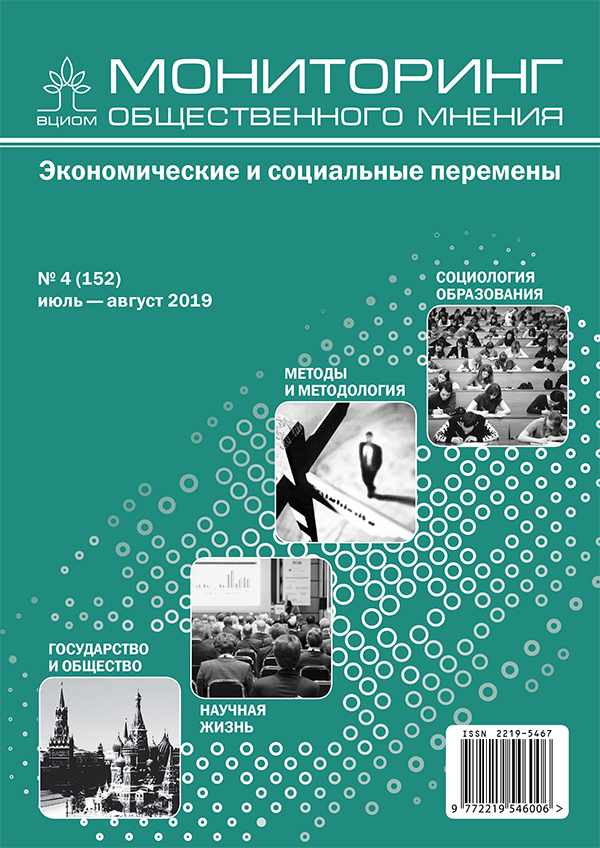Ethno-confessional tension in Russian society: an empirical test of a measurement method
DOI:
https://doi.org/10.14515/monitoring.2019.4.07Keywords:
ethnic tensions, ethno-national conflicts, methods of measuring ethnic tensions, indices in sociologyAbstract
The method described in the paper is based on the index of ethno-confessional tension tested in the Institute of Sociology of the Russian Academy of Sciences in 2015-2018. This method is a simplified version of a tool developed by I.M. Kuznetsov and O.E. Khukhlaev to analyze ethno-confessional tensions. Having a minimum number of questions related to ethno-confessional tensions, this method provides an accurate measurement of the levels of tension, helps detect its hotspots and determine the factors. The study shows that certain elements of the index give additional information about the degree of “us-them” differentiation based on ethno-national belonging and community’s readiness for violence. This, in combination with individual indicators included in the index, allows obtaining large amounts of data for the analysis using 8 binary variables. The index values are directly linked to the events which happen in interethnic respondents’ communities. The authors explain that interethnic tensions have both objective and subjective foundations. The former involve population density and its mono or multinational character. Objective factors intensifying negative moods at micro level mainly refer to unfavorable labor experience (especially recent unemployment). Subjective factors are related to hurtful emotions embracing material well-being, soaring ambitions, a feeling of unfair social situation and a narrow range of interests in everyday life. The lack of long-term planning horizon amidst relative ill-being typical of Russians reinforces their general anxiety and their need to get psychological comfort in an ascriptive identity (ethno-national belonging).






